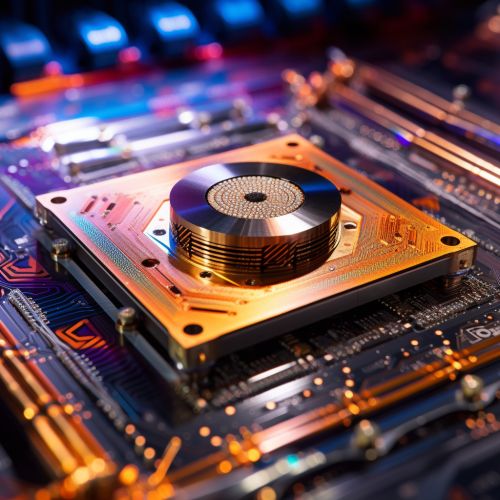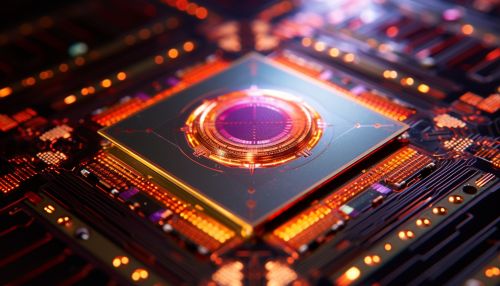Quantum Metrology
Introduction
Quantum metrology is an emerging field of study that utilizes the principles of quantum mechanics to improve the precision and accuracy of measurements. It is a branch of quantum physics that focuses on the application of quantum phenomena to measurement techniques, enhancing the sensitivity and resolution beyond what can be achieved with classical systems.


Quantum States and Quantum Noise
In quantum metrology, the fundamental units of information are quantum states. These states, unlike their classical counterparts, can exist in superpositions, allowing for a greater range of possible measurements. However, these states are susceptible to quantum noise, which can degrade the quality of the measurements. Quantum noise is a type of uncertainty inherent in quantum systems, and it is a major challenge in the field of quantum metrology.
Quantum Sensing
One of the key applications of quantum metrology is quantum sensing, where quantum systems are used to detect and measure physical quantities. Quantum sensors can measure quantities such as time, frequency, acceleration, and magnetic fields with unprecedented precision. These sensors leverage the properties of quantum superposition and entanglement to achieve this high level of precision.
Quantum Interferometry
Quantum interferometry is another important aspect of quantum metrology. It involves the interference of quantum states to measure physical quantities. The interference pattern produced by quantum states can provide information about the quantity being measured. Quantum interferometry has applications in various fields, including astronomy, where it is used to measure distances and detect gravitational waves.
Quantum Clocks
Quantum clocks, which utilize the principles of quantum mechanics to measure time, are another application of quantum metrology. These clocks use the oscillations of quantum states to keep time, and they can achieve a level of precision far beyond that of classical clocks. Quantum clocks have potential applications in various fields, including navigation, telecommunications, and fundamental physics research.
Challenges and Future Directions
Despite the significant advances in quantum metrology, there are still many challenges to overcome. The sensitivity of quantum systems to noise is a major issue, and much research is being done to develop techniques to mitigate this noise. Additionally, the practical implementation of quantum metrology techniques is still a challenge, due to the complexity of quantum systems and the need for precise control.
The future of quantum metrology is promising, with many potential applications in various fields. As our understanding of quantum mechanics continues to grow, and as technology advances, the possibilities for quantum metrology will continue to expand.
